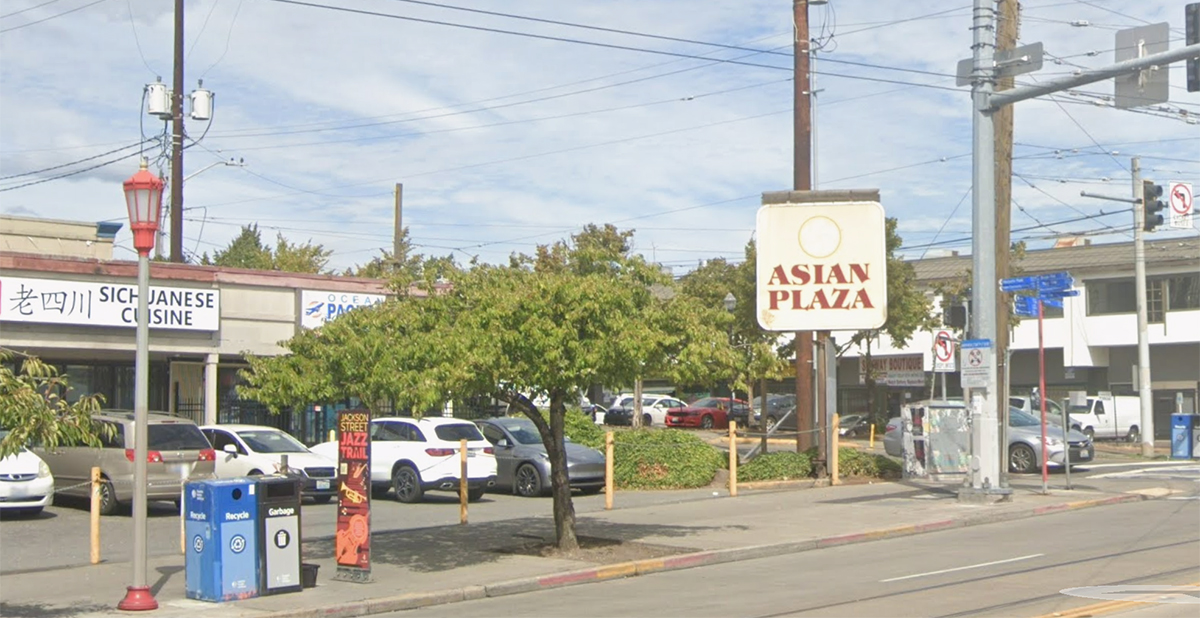Copyright nwasianweekly

By James Tabafunda NORTHWEST ASIAN WEEKLY We’re getting more details about a lawsuit that sheds light on how city policies toward homelessness, public safety, and land use may have reshaped Little Saigon—and led one longtime property owner to seek $30 million in damages. Dennis L. Chinn and Chinn Investments LLC filed the 33-page complaint in U.S. District Court for the Western District of Washington on Aug. 4 against the City of Seattle. The case is assigned to Judge Richard A. Jones and concerns allegations of land condemnation and civil rights violations related to the city’s handling of homelessness policies in Little Saigon. The complaint describes the intersection of South Jackson Street and 12th Avenue South as “a wasteland of drug use and sales, homeless encampments, fecal waste, needles and drug paraphernalia everywhere” where open-air drug markets and widespread theft have decimated the neighborhood’s once-thriving Vietnamese American business community. Five generations of family investment The Chinn family’s connection to the property stretches back to the late 1940s, when it was acquired by Wilce and Mitsuko Shiomi, whose daughter Sandra married Dennis Chinn in 1968. The couple developed the Asian Plaza Shopping Center in 1989, which became a cultural and commercial hub for more than three decades. “Plaintiff’s family has had strong cultural and economic ties to this community and the parcel of land that is the subject of this lawsuit for more than 75 years and five generations,” the complaint states. Asian Plaza once housed popular businesses including Viet-Wah, Tamarind Tree Restaurant and numerous small ethnic shops. On weekends, customers from across the region came to Little Saigon to shop, dine, and experience the vibrant cultural scene. “Visiting at any time was interesting, exciting, educating, and above all perfectly safe,” Chinn wrote in the complaint. “That all changed in a heartbeat.” Navigation Center and policy decisions The lawsuit alleges the city’s problems in Little Saigon intensified in 2017 when officials placed the Navigation Center homeless shelter at the Pearl S. Warren Building, 606 12th Avenue South. The “low-barrier facility,” modeled after San Francisco’s approach, allowed residents to stay without criminal background checks, mandatory participation in services, or sobriety requirements. Chinn wrote about a meeting with the city’s then-Mayor Ed Murray’s director of homelessness, George Scarola, “Discussion about the rationale of placing it in Little Saigon was not permitted at that meeting. In retrospect, Plaintiff believes Scarola’s refusal to allow any discussion makes perfect sense. How could he possibly have defended a decision that was based on a conscious policy to concentrate the homelessness, crime, and drug issues in Little Saigon in order to free other neighborhoods from these issues?” “A minority population that was predominantly immigrants had neither the resources or economic and political clout to fight. At its most base, this was a blatantly racist decision in violation of existing anti-discrimination laws.” The Navigation Center operated for almost eight years before closing in March 2025, but community leaders say its problems continue to plague the neighborhood. Businesses forced to close As conditions deteriorated, Chinn’s tenants faced daily challenges. In a May 3, 2024, Seattle Times op-ed, he wrote that Viet-Wah employees faced “multiple thefts every day,” describing thieves who “would brazenly walk into the store, load up whatever items they wanted and simply walk out. When store employees tried to stop them, fights were a regular occurrence.” Store managers stopped calling 911 after police consistently failed to respond to theft reports, according to the complaint. Without enforcement, the 35-year-old supermarket closed their doors permanently. “Their closing in (September) 2022 can be directly attributed to the failure of the City of Seattle to enforce its existing anti-theft laws and prosecute repeat thieves” the complaint alleges. One by one, Asian Plaza Shopping Center’s remaining tenants also closed their doors. Annual rental income that totaled $327,000 in 2015 dropped to zero by 2022. Fire destroys vacant building With no security company willing to take on the risks, Chinn’s son Brian became “the designated security team for the building,” responding whenever intruders cut locks, smashed windows, or cut holes in fences. Thieves repeatedly broke into the property, systematically stealing copper wiring and pipes from the building. The city placed the property in its vacant building monitoring program, charging Chinn $700 monthly for inspections that the complaint describes as cursory at best. The total monitoring fees reached $4,400. More than 85 firefighters battled a two-alarm blaze at the property on June 10, 2024. The fire destroyed the structure, valued at $6 million for insurance purposes. Seattle Fire Department investigators said the cause was undetermined, and the remains have since been demolished. Failed sale and legal claims Before the fire, Chinn had entered into a contract in December 2021 to sell the property to Mill Creek Residential Trust for $21 million. The national developer spent two years planning a mixed-use project with 397 apartments, retail space, and parking. But after lenders visited the site, the complaint alleges “they were shocked at what they saw and questioned why would they invest in such a run-down area,” and the deal collapsed at the 11th hour. “Commercial real estate in other neighborhoods is selling and new construction appears to be booming,” the complaint states. “What accounts for the marked difference?” The lawsuit brings three primary claims: violations of equal protection under the 14th Amendment, racial discrimination under Title VII of the Civil Rights Act of 1964, and unconstitutional taking of private property without just compensation under the Fifth Amendment. Chinn argues the city violated his constitutional rights by selectively failing to enforce laws against theft and shoplifting, vagrancy, open drug use and sales, car prowling, creating a public nuisance, EBT fraud, and obstructing public ways in Little Saigon while enforcing them elsewhere. The unconstitutional takings claim asserts the city violated his rights to exclude others from his property, to beneficial use of the property, and to sell it. Broader neighborhood crisis In November 2024, a suspect randomly stabbed 10 people over a 38-hour period near South Jackson Street and 12th Avenue South, though no deaths were reported. A separate stabbing occurred at the same intersection in late December 2024. King County Metro announced in December 2024 it would indefinitely suspend bus service near the same intersection due to safety concerns. The 2024 Point-in-Time Count estimated at least 16,868 people experienced homelessness in King County on a given night, a 26% increase from 2022. The Chinatown-International District continues to experience the highest rates of violent crime downtown, according to a Downtown Seattle Association report. The King County Regional Homelessness Authority, which coordinates homeless services across the region, announced layoffs of 13 staff members, citing a $4.7 million budget shortfall for its 2026 fiscal year, according to reports from Oct. 30-31. City response and litigation status The City of Seattle filed a motion to dismiss the amended complaint on Sept. 30. It argues that Chinn “lacks standing” and that his “grievances stem from policy disagreements.” City officials have declined to comment on ongoing litigation. Relief sought Beyond monetary damages, Chinn requests the court order the city to stop “selectively enforcing (or failing to enforce) its own ordinances against vagrancy, public drug use and sales, and theft, to benefit one group versus another.” He also requests the court order the city to establish an “inverse condemnation fund” compensating all small business owners in the neighborhood who suffered losses due to city policies. “The costs of the City’s homelessness policies in Little Saigon are being borne in substantial part by Plaintiff and his now-defunct tenants (and many others in the same situation in Little Saigon) at the same time the problem is being made worse by the City’s continuation of those same policies,” the complaint states. Chinn, who holds a law degree from the University of Washington and a PhD in economics from the University of California, Berkeley, is representing himself and his company due to “the high cost of hiring representation.” “While Plaintiff apologizes to the Court and opposing counsel in advance for any inconvenience he might cause in the course of this litigation, the sad truth is that this is what access to the judicial system looks like from Little Saigon,” states the complaint. Others’ perspectives Community leaders, including former Seattle City Councilmember and daughter of the late Paul Woo—buyer of the Louisa Hotel in 1963—have been advocating for increased police presence, enhanced outreach services and new ideas to address the ongoing challenges around South Jackson Street and 12th Avenue South. “Reality is not great,” Woo said. “We’re constantly facing 20% vacancies. Many people move out (of the Louisa) because they don’t feel safe. Our building just had to hire security like many buildings, and that’s $200,000 a year.” Two months ago, community organizations including Low Income Housing Institute unveiled a 15-point public safety plan calling for specific solutions to make Little Saigon safer.



